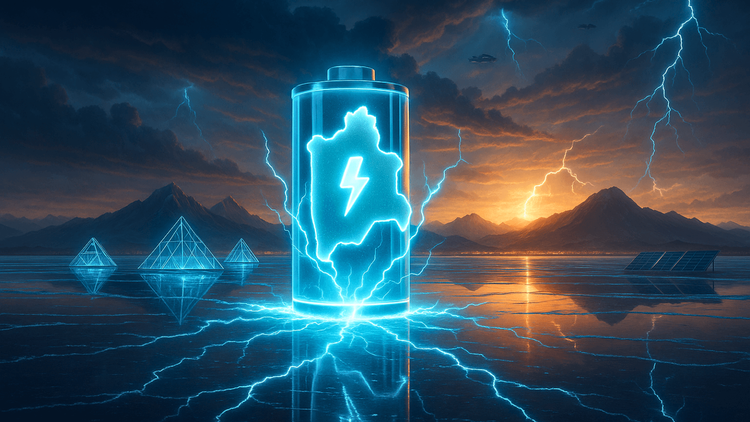Bolivia Hits “Recharge” on Its Lithium Dream
Rodrigo Paz’s centrist victory stirs cautious optimism that Bolivia may finally open its vast lithium reserves to the world, but political, legal, and technical challenges still stand in the way.

Bolivia, home to the world’s largest lithium reserves, has long stood at the crossroads of promise and paralysis. For years, political infighting and rigid state control kept the country’s lithium potential buried beneath the dazzling white salt flats of Uyuni. But the election of centrist Rodrigo Paz has shifted the atmosphere. His rise has sparked a measured optimism that Bolivia might finally open the door to international investment and revive its long-stalled dream of becoming a global lithium powerhouse.
Paz’s victory signals a potential break from two decades of socialist rule that emphasized state dominance and ideological posturing over pragmatic policy. Outgoing president Luis Arce had struck deals with Chinese and Russian companies for lithium extraction, but Bolivia’s Congress blocked those agreements amid concerns of corruption and lack of transparency. Paz, who campaigned on transparency and private-sector-led growth, has promised to review those contracts. While this could attract new bidders, it also introduces uncertainty for the companies already involved.
At the heart of Bolivia’s lithium story lies a complex contradiction. The country sits on an estimated 23 million metric tons of lithium resources—an unparalleled reserve of the metal that fuels the world’s electric vehicle revolution. Yet despite this natural advantage, Bolivia’s production remains negligible. Its state-run company, Yacimientos de Litio Bolivianos (YLB), produced just 2,000 metric tons last year, generating about $15.6 million in revenue. In comparison, Chile produced nearly 300,000 tons, and Argentina about 70,000. The gap is enormous and symbolic of the challenges ahead.
For Paz, the road forward is riddled with both legal and technical hurdles. The law currently requires that only the state extract lithium, a provision that has scared away investors and left Bolivia technologically behind its neighbors. Reforming it would demand a constitutional amendment or referendum—an uphill battle in a country where resource nationalism runs deep. Still, without change, Bolivia risks missing yet another lithium boom.
Technological difficulties further complicate matters. Traditional evaporation methods have proven inefficient in Bolivia’s salt flats, where high magnesium concentrations make extraction difficult and costly. Advanced direct lithium extraction (DLE) technologies, such as those pioneered by U.S. firms like EnergyX and Lilac Solutions, could offer alternatives. But integrating these methods requires not only capital but also policy stability and regulatory clarity—two things Bolivia has struggled to deliver.








